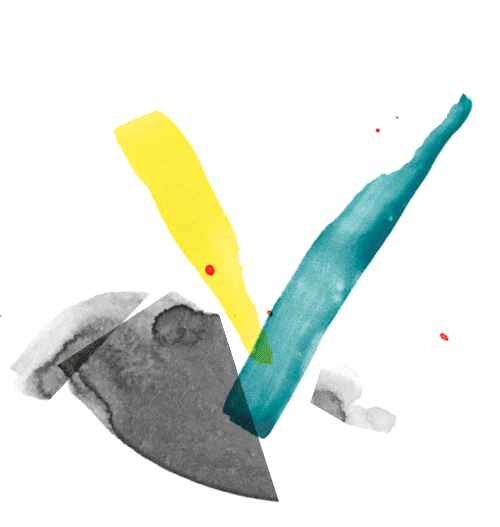

Sign up for our newsletters. You can change the settings or unsubscribe at any time.
Thank you for your subscription. We have sent you an e-mail with a confirmation link.


exp. 1
exp. 2
exp. 3

Paula Baeza Pailamilla
Venue: KW Institute for Contemporary Art
Paula Baeza Pailamilla
Born 1988 in Santiago, CL – lives and works in Santiago
In the work of Mapuche artist Paula Baeza Pailamilla, urban public spaces are occupied by the bodies of Indigenous women in actions that address a condition of invisibility in the context where they live today, displaced from their originary territories. For Kurü Mapu [Black Land, 2018], the artist invited other Mapuche women to collectively weave an imaginary map of Ngulu Mapu, their ancestral territory violated by Spanish colonization. The map was made with different types of dark-colored yarn over a two-month period at the Museo de la Memoria y los Derechos Humanos (Museum of Memory and Human Rights) and the Huelen Hill in Santiago de Chile. Present in the map, the women’s outfits, and the work’s title, black is a sacred color for the Mapuche that signifies purity and fertility and is used ceremonially by women.
The work encompasses the process of collective weaving, the gatherings of the women in the public spaces, and the exchanges that took place among them. In the exhibition, the piece is presented through the woven map and a video that documents their meetings. The film shows the women taking the map to the Plaza de Armas, in the heart of Santiago, and standing on it with their bare feet, a symbolic act of confronting a state that has systematically worked towards the annihilation of the Mapuche people. Towards the end of the video, we hear the voices of the women referring to another Mapuche woman, Macarena Valdés, to whom the work is dedicated. Valdés, also known as “La Negra,” was murdered in 2016 while fighting the construction of a cross-border hydroelectric power plant on Indigenous lands. The case remains unsolved by Chilean authorities.
Beatriz Lemos
El primer nueva corónica y buen gobierno
Felipe Guamán Poma de Ayala
Chronicle
THE MOBILIZATION
Nicolás Cuello
Text
Struggle as Culture: The Museum of Solidarity, 1971–73
María Berríos
Essay
Maternidades subversivas
María Llopis
Monograph
Memorial to the Sinti and Roma Victims of National Socialism
Dani Karavan
Memorial
Solidarity and Storytelling. Rumors against Enclosure
María Berríos
Essay
By using this website you agree to the use of cookies in accordance with our data privacy policy.

Paula Baeza Pailamilla
Venue: KW Institute for Contemporary Art
Paula Baeza Pailamilla
Born 1988 in Santiago, CL – lives and works in Santiago
In the work of Mapuche artist Paula Baeza Pailamilla, urban public spaces are occupied by the bodies of Indigenous women in actions that address a condition of invisibility in the context where they live today, displaced from their originary territories. For Kurü Mapu [Black Land, 2018], the artist invited other Mapuche women to collectively weave an imaginary map of Ngulu Mapu, their ancestral territory violated by Spanish colonization. The map was made with different types of dark-colored yarn over a two-month period at the Museo de la Memoria y los Derechos Humanos (Museum of Memory and Human Rights) and the Huelen Hill in Santiago de Chile. Present in the map, the women’s outfits, and the work’s title, black is a sacred color for the Mapuche that signifies purity and fertility and is used ceremonially by women.
The work encompasses the process of collective weaving, the gatherings of the women in the public spaces, and the exchanges that took place among them. In the exhibition, the piece is presented through the woven map and a video that documents their meetings. The film shows the women taking the map to the Plaza de Armas, in the heart of Santiago, and standing on it with their bare feet, a symbolic act of confronting a state that has systematically worked towards the annihilation of the Mapuche people. Towards the end of the video, we hear the voices of the women referring to another Mapuche woman, Macarena Valdés, to whom the work is dedicated. Valdés, also known as “La Negra,” was murdered in 2016 while fighting the construction of a cross-border hydroelectric power plant on Indigenous lands. The case remains unsolved by Chilean authorities.
Beatriz Lemos
Museo de la Solidaridad Salvador Allende (MSSA) in Berlin
A conversation between María Berríos and Melanie Roumiguière
Conversation
Weaving Solidarity
Renata Cervetto and Duygu Örs
Q&A
III: La familia son quiénes se alegran con nuestros actos diarios. Detrás de las curadoras de la XI
María Berríos, Agustín Pérez Rubio
Conversation
COVID-19 VIDEOS
Carlos Motta
Video
St Sara Kali George
Delaine Le Bas
Soundscape
Struggle as Culture: The Museum of Solidarity, 1971–73
María Berríos
Essay
By using this website you agree to the use of cookies in accordance with our data privacy policy.

Paula Baeza Pailamilla
Venue: KW Institute for Contemporary Art
Paula Baeza Pailamilla
Born 1988 in Santiago, CL – lives and works in Santiago
In the work of Mapuche artist Paula Baeza Pailamilla, urban public spaces are occupied by the bodies of Indigenous women in actions that address a condition of invisibility in the context where they live today, displaced from their originary territories. For Kurü Mapu [Black Land, 2018], the artist invited other Mapuche women to collectively weave an imaginary map of Ngulu Mapu, their ancestral territory violated by Spanish colonization. The map was made with different types of dark-colored yarn over a two-month period at the Museo de la Memoria y los Derechos Humanos (Museum of Memory and Human Rights) and the Huelen Hill in Santiago de Chile. Present in the map, the women’s outfits, and the work’s title, black is a sacred color for the Mapuche that signifies purity and fertility and is used ceremonially by women.
The work encompasses the process of collective weaving, the gatherings of the women in the public spaces, and the exchanges that took place among them. In the exhibition, the piece is presented through the woven map and a video that documents their meetings. The film shows the women taking the map to the Plaza de Armas, in the heart of Santiago, and standing on it with their bare feet, a symbolic act of confronting a state that has systematically worked towards the annihilation of the Mapuche people. Towards the end of the video, we hear the voices of the women referring to another Mapuche woman, Macarena Valdés, to whom the work is dedicated. Valdés, also known as “La Negra,” was murdered in 2016 while fighting the construction of a cross-border hydroelectric power plant on Indigenous lands. The case remains unsolved by Chilean authorities.
Beatriz Lemos
Grupo Experimental de Cine en acción
Gabriel Peluffo
Drawing
Hatred Among Us
Lisette Lagnado
Essay
IV: How Fear Can Dismantle a Body. Vis-a-Vis with two of four curators of the 11th Berlin Biennale
María Berríos, Lisette Lagnado
Conversation
Invitation to the Species: Cecilia Vicuña
Tamaas / Cecilia Vicuña
Podcast
Género y colonialidad en busca de claves de lectura y de un vocabulario estratégico descolonial
Rita Segato
Essay
St Sara Kali George
Delaine Le Bas
Soundscape
By using this website you agree to the use of cookies in accordance with our data privacy policy.

Paula Baeza Pailamilla
Venue: KW Institute for Contemporary Art
Paula Baeza Pailamilla
Born 1988 in Santiago, CL – lives and works in Santiago
In the work of Mapuche artist Paula Baeza Pailamilla, urban public spaces are occupied by the bodies of Indigenous women in actions that address a condition of invisibility in the context where they live today, displaced from their originary territories. For Kurü Mapu [Black Land, 2018], the artist invited other Mapuche women to collectively weave an imaginary map of Ngulu Mapu, their ancestral territory violated by Spanish colonization. The map was made with different types of dark-colored yarn over a two-month period at the Museo de la Memoria y los Derechos Humanos (Museum of Memory and Human Rights) and the Huelen Hill in Santiago de Chile. Present in the map, the women’s outfits, and the work’s title, black is a sacred color for the Mapuche that signifies purity and fertility and is used ceremonially by women.
The work encompasses the process of collective weaving, the gatherings of the women in the public spaces, and the exchanges that took place among them. In the exhibition, the piece is presented through the woven map and a video that documents their meetings. The film shows the women taking the map to the Plaza de Armas, in the heart of Santiago, and standing on it with their bare feet, a symbolic act of confronting a state that has systematically worked towards the annihilation of the Mapuche people. Towards the end of the video, we hear the voices of the women referring to another Mapuche woman, Macarena Valdés, to whom the work is dedicated. Valdés, also known as “La Negra,” was murdered in 2016 while fighting the construction of a cross-border hydroelectric power plant on Indigenous lands. The case remains unsolved by Chilean authorities.
Beatriz Lemos
A Moment of True Decolonization / Episode #6: Sinthujan Varatharajah. Constructing the Tamil Eelam State
The Funambulist / Sinthujan Varatharajah
Podcast
St Sara Kali George
Delaine Le Bas
Soundscape
Flávio de Carvalho: Fazenda Capuava
Archive of Lisette Lagnado
Photographs
Maternidades subversivas
María Llopis
Monograph
„Klaus Eckschen: Hörspiel“
Die Remise
Hörspiel
#fight4rojava
Graffiti
By using this website you agree to the use of cookies in accordance with our data privacy policy.
By using this website you agree to the use of cookies in accordance with our data privacy policy.




